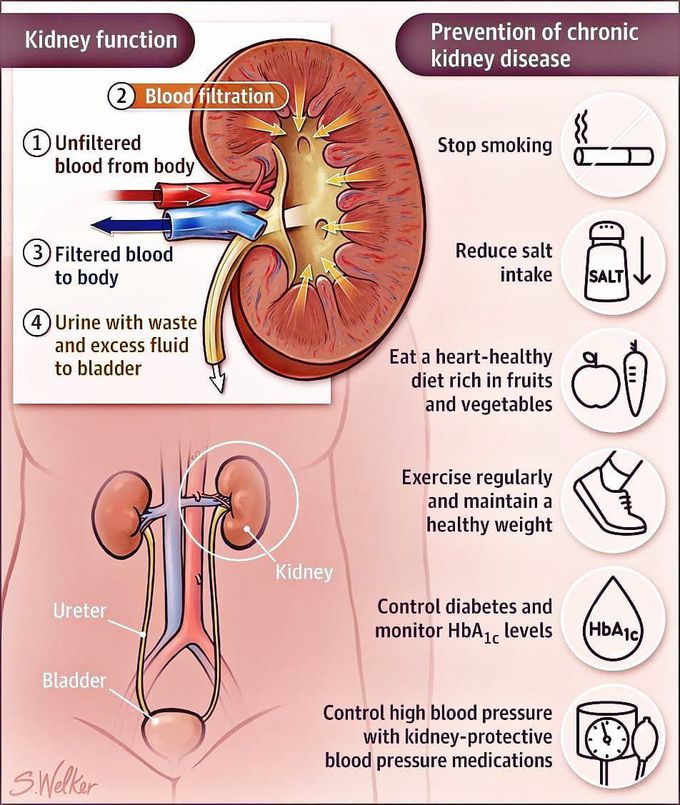


𝐂𝐡𝐫𝐨𝐧𝐢𝐜 𝐊𝐢𝐝𝐧𝐞𝐲 𝐃𝐢𝐬𝐞𝐚𝐬𝐞
𝐂𝐡𝐫𝐨𝐧𝐢𝐜 𝐊𝐢𝐝𝐧𝐞𝐲 𝐃𝐢𝐬𝐞𝐚𝐬𝐞 The kidneys function as blood filters that drain waste products while retaining other valuable blood contents like proteins. If these filters are damaged, they initially may become “leaky,” and substances like proteins can seep from blood into urine. At later stages, these filters slowly shut down and lose their ability to filter. When kidney impairment lasts for more than 3 months, it is called chronic kidney disease. This process ultimately results in decreased urine production and kidney failure, with buildup of waste products in the blood and body tissues. One common reason for kidney failure in the United States is diabetes. Sometimes chronic kidney disease is accompanied by high blood pressure, which not only can be caused by kidney damage but also further accelerates kidney injury and is a major reason for the negative effects of chronic kidney disease on other organs, including increased risk of heart disease and stroke, collection of excess body fluids, anemia, weakening of bones, and impairment of the way the body eliminates medications. Diagnosis Chronic kidney disease develops slowly, with few symptoms. It is often not recognized until the disease is advanced. If it is detected early, treatment can slow down or avoid kidney function decline and diminish the negative effects on other body functions. A blood test measuring glomerular filtration rate assesses how well the kidneys clear the blood of a waste product called creatinine. A value of 60 to 90 may be an early sign of kidney disease; a value below 60 is usually considered abnormal. A test using a urine sample evaluates the presence of protein (albumin) in the urine; repeated results of 30 mg or more can indicate a problem. High blood pressure may also point to underlying chronic kidney disease. . Sources: National Kidney Disease Education Program, American Kidney Fund, National Kidney Foundation https://jamanetwork.com/journals/jama/fullarticle/2524193.
Source: https://www.instagram.com/p/BqgcAmuBTVQ/?utm_source=ig_share_sheet&igshid=59c5eyl6a1tzBohot umda information mili aaj humko kidney k bare.m... Issse pehle humko nhi pata tha itna or ye sb

